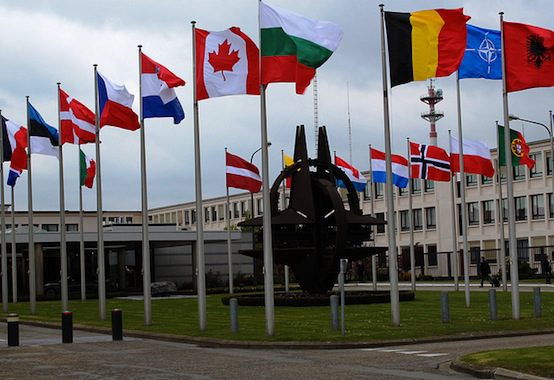To Get Burden-Sharing, the U.S. Has to Stop Indulging Allies

Walter Russell Mead misses the point as usual:
Let those numbers sink in. Only 34% of Germans, 25% of Greeks and Italians, 36% of Czechs, 33% of Hungarians and 41% of the French believe their country should fulfill its treaty obligation if another European country is attacked. Only the U.S., Canada, the U.K., the Netherlands and Lithuania had a majority in favor of honoring the NATO commitment to mutual defense.
Europeans often contrast the “nationalism” of backward political cultures like Russia, China and the U.S. with their own supposedly enlightened attitude of cosmopolitan solidarity. Yet if these numbers are accurate, Europeans haven’t replaced nationalism with European solidarity. They have replaced nationalism with fantasy: the belief that one can have security and prosperity without a strong defense.
Mead conveniently leaves out some important details from the survey he cites. As I said when I wrote about this last week, European unwillingness to fight on behalf of another NATO ally is paired with their belief that the U.S. will use force to defend NATO members in the event of a conflict with Russia:
Once again, the survey found that respondents all across Europe are more confident that the U.S. would respond to a Russian conflict with a NATO country with force than they are that their own government should respond that way.
Europeans are not indulging in fantasy, or at least not the one that Mead claims. Most Europeans believe in a strong defense. They just assume that the U.S. will be the one to provide that defense. They have grown used to dependence on U.S. guarantees to such an extent that they take for granted that the U.S. will defend European NATO members that they themselves do not want to defend. American hawks have insisted that they believe this for decades, and those same hawks have actively discouraged any European initiative that might seem to compete with or undermine NATO. Whenever there is a flicker of independent European effort in this area, Washington makes sure to snuff it out. And then our leaders and pundits wonder why European allies remain so dependent on us.
Because the U.S. has committed to bailing out NATO members in trouble, most European publics have concluded that they don’t need to worry about this. It turns out that you can’t have the world’s superpower as the leading European power without convincing almost all of its allies that they can skimp on security. Because the U.S. is willing to subsidize the defense of Europe with our own exorbitant military spending, most European governments have decided that they can afford to let their own military spending and capabilities lag behind. To the extent that Europeans “want to have things both ways,” it is U.S. indulgence that has allowed them to think they can. It is only when our allies begin to question the U.S. commitment that they have to think more seriously about relying on themselves. As long as our allies expect the U.S. to swoop in, they won’t commit to taking on the burdens themselves.
If the U.S. started cutting back significantly on our own military spending and let our European allies know that they were responsible for a much larger share of providing for their own defense, we would see European attitudes change quite quickly. Ever-increasing U.S. military spending sends the opposite message. If Mead ever starts calling for slashing U.S. military spending and withdrawing more U.S. forces from Europe, then we’ll know that he is serious in his complaints about getting European allies to do more for their own defense. Until then, it is hawks like Mead that really want to have things both ways by encouraging Europeans to depend on the U.S. and then blaming them for their dependence.